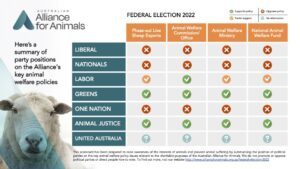
Catherine Laurence


If you want to get your gut in order, Dr Will Bulsiewicz is the expert to help you sort out fact from fiction. This is the gut-health cheat sheet...
In the fast-paced and demanding world we live in, finding moments of stillness and calm can be challenging. In an attempt to find a little peace...
The hidden veggies in this Bolognese make it a family-friendly dinner that is both healthy and hearty.
Okonomiyaki is a savoury pancake that is a popular street food from Osaka, Japan. It’s a favourite brunch for all who’ve tried it. You’ll...
This healthy, dairy free tzatziki dip made with natural COYO coconut yogurt can be whipped up in just a few minutes. Delicious for topping off...
Treat yourself to these tasty banana, coconut and teff muffins by Sally O'Neil.
Perfect for breakfast or brunch, this beautiful dish tastes as good as it looks!
These colourful vegan sushi jars pack in a heap of nutritious wholefood ingredients, and are a flavour sensation.
Gloriously rich and sweet, these caramelised pumpkin wedges are topped with a luscious dollop of melty homemade vegan mozzarella.
Spraying sheets and pillows with calming scents can be a wonderful aid to slumber
The next time you go for a walk, discover the wonder of the everyday world around you
A skincare routine can be a way to nourish yourself inside and out
When the clouds converge, practise gratitude for the smallest of glimmers, and learn to dance in the rain.
Plant-based dietary alternatives to animal products are better for the environment and for human health when compared with the animal products they are designed to replace, say the authors of a new study.
A new paper published in Future Foods has identified multiple benefits of plant-based animal product alternatives for the environment, public health, personal health, and animals.
The research, conducted by psychologists at the University of Bath, examined 43 studies into the health and sustainability impacts of plant-based foods, as well as consumer attitudes. It concludes that plant-based meat and dairy alternatives “offer a healthier and more environmentally sustainable solution to the which takes into account consumer preferences and behaviour.”
The review found that plant-based products have a far lower climate impact than the animal products they were replacing. A 2016 lifecycle assessment analysed 39 plant-based alternatives, and found they were responsible for up to 54 times less than their animal-derived counterparts. Another paper in 2021 found that, compared to beef burgers, plant-based burgers were associated with up to 98 percent less greenhouse gas emissions.
The review also looked at the land, water, and pollution impacts of plant-based versus animal products, finding the plant-based alternatives have a consistently smaller impact.
Studies focusing on the healthiness of plant-based products also found they tend to have better nutritional profiles compared to animal products, with one paper finding that 40 percent of conventional meat products were classified as ‘less healthy’ compared to just 14 percent of plant-based alternatives, based on the UK’s Nutrient Profiling Model.
Others found plant-based meat and dairy were good for weight loss and building muscle mass, and could be used to help people with specific health conditions. There is also the opportunity for food producers to add ingredients such as edible fungi, microalgae or spirulina to plant-based foods, boosting properties such as amino acids, vitamins B and E, and antioxidants. Future innovations in processing and ingredients are likely to lead to further nutritional improvements.

The study also reviewed literature on consumer demand for plant-based alternatives to meat, dairy and eggs. The consistent finding is that the majority of purchases are by omnivores seeking to replace animal products with foods that function in the same way. One study found that almost 90 percent of consumers who ate plant-based meat and dairy were in fact meat-eaters or flexitarians; another found that plant-based products with a similar taste, texture, and price to processed meat had the best chance of replacing meat.
Report author Dr Chris Bryant said, “Increasingly we’re seeing how plant-based products are able to shift demand away from animal products by appealing to three essential elements consumers want: taste, price and convenience.”
Dr Bryant anticipates even greater improvements to come. “Despite the incredible advances that plant-based producers have made over recent years, there is still huge potential to improve their taste, texture and how they cook. There’s also enormous potential to innovate with ingredients and processes to improve their nutritional properties – for example by boosting vitamin content.”
The study suggests that more research will now be needed to make these improvements a reality, ensuring manufacturers can make products that taste better, are healthier, and provide consumers with sustainable options that are more likely to reduce demand for meat.
If you want to get your gut in order, Dr Will Bulsiewicz is the expert to help you sort out fact from fiction. This is the gut-health cheat sheet...
In the fast-paced and demanding world we live in, finding moments of stillness and calm can be challenging. In an attempt to find a little peace...
Spraying sheets and pillows with calming scents can be a wonderful aid to slumber
The next time you go for a walk, discover the wonder of the everyday world around you
A skincare routine can be a way to nourish yourself inside and out
When the clouds converge, practise gratitude for the smallest of glimmers, and learn to dance in the rain.
After 34 years in business, Australia’s longest running vegan institution, Bodhi Restaurant, has announced that it will be closing its doors at Cook + Philip Park.
Having paved the way for the plant-based movement in Australia, Bodhi Restaurant Bar will be serving up its final dish on 7 August 2022. The beloved institution has been a fixture on the Sydney scene since 1988, and a long-time favourite among vegans and non-vegan diners alike.
Owner and vegan pioneer Heaven Leigh says the decision to close feels bittersweet, but she is proud of everything the acclaimed family enterprise has achieved, and wanted to close on a high while the restaurant is thriving.
“My family opened the first Bodhi Vegetarian Restaurant at a time when no-one really knew much about vegetarianism or veganism,” she says. “No one thought – including ourselves – that we would make it past three years in this industry, let alone survive and thrive three generations and 34 years later.”
Although lockdowns and extreme staff shortages throughout the pandemic have played a part in Heaven’s decision, the catalyst is wanting to spend more quality time with her young family and prioritise her wellbeing.
However, Heaven assures long-time fans that this isn’t the end of the story, just the end of a chapter, and she’s excited to focus on bringing vegan food to a wider audience.
“It’s with both excitement for the future and a heavy heart that I announce that Bodhi will be closing its doors at its Cook & Philip location,” Heaven shared in a statement. “I am incredibly passionate about the plant-based space and the community we have built. This is not the end. Thank you to everyone who has visited us, supported us and made our Bodhi dream a reality for more than three decades.”
Over the past 34 years Bodhi has managed seven venues, inspired hundreds of thousands of people to eat and live consciously, executed over 50 brand collaborations, and served millions of delicious vegan meals that have attracted the celebrities and athletes including the likes of Keanu Reeves, Hugo Weaving, Toby McGuire, Novak Djokovic, and Sydney’s own internationally acclaimed DJ and vegan advocate, DJ Tigerlily.
Passionate about supporting women in business, Bodhi has established thousands of successful careers of talented female chefs, managers and waitstaff, having promoted the first female head chef in the yum cha industry.
In testament to its popularity among Australia’s vegan and plant-forward community, Bodhi Restaurant Bar has been honoured two years running in the Nourish Vegan Awards in the Vegan Dining category, taking out the winner’s trophy in the inaugural 2020 awards, and coming in a finalist in 2021.

Heaven herself has also won numerous well-deserved accolades, including a place on PETA’s lineup of leading female vegan pioneers celebrated on International Women’s Day 2022.
There is no doubt the famed restaurant and bar in its stunning central location will be greatly missed by plant-based food lovers in Sydney and beyond. Fans including DJ Tigerlily have been commenting on the restaurant’s farewell post on Instagram, expressing sadness at the closure, along with gratitude, well wishes, and excited anticipation for what is to come.
View this post on Instagram
***
If you’re in or around Sydney, you can enjoy Bodhi’s famous vegan yum cha one last time between now and 7 August by booking a table at bodhirestaurant.com.au. The restaurant is also encouraging everyone to sign up to their newsletter and follow their social media channels @bodhirestaurantbar to be the first to hear about what’s to come.
Images: Bodhi Restaurant Bar
In the fast-paced and demanding world we live in, finding moments of stillness and calm can be challenging. In an attempt to find a little peace...
If you want to get your gut in order, Dr Will Bulsiewicz is the expert to help you sort out fact from fiction. This is the gut-health cheat sheet...
Spraying sheets and pillows with calming scents can be a wonderful aid to slumber
The next time you go for a walk, discover the wonder of the everyday world around you
A skincare routine can be a way to nourish yourself inside and out
When the clouds converge, practise gratitude for the smallest of glimmers, and learn to dance in the rain.
ProVeg shares 50 quickfire reasons to prioritise plant-based diets for a sustainable future this World Environment Day – and every day!
It’s 50 years since the famous 1972 Stockholm Conference which put sustainability on the global agenda, designated 5 June as World Environment Day, and created the United Nations Environment Programme.
In recognition of this significant anniversary, World Environment Day 2022 reprises the theme of the 1972 conference: ‘Only One Earth’. The campaign highlights the need to reset the balance with nature through transformative changes in how we eat, live, work and move.
One of the most powerful opportunities is to shift how we eat – especially in countries with high consumption of animal products. It’s this message that food awareness organisation ProVeg International has taken to the accompanying ‘Stockholm+50’ high-level conference this week.
“Food system change needs to be embraced if we are to make progress towards our global goals,” said Raphaël Podselver, Head of UN Advocacy at ProVeg. “Transitioning to a plant-rich diet is just one of those effective solutions, releasing the huge pressure that global food systems place on our planet and its finite resources.”
Summarising the huge potential of a plant-based transition, here are 50 reasons why ProVeg are advocating for policymakers, businesses and citizens to embrace this shift, on World Environment Day and every day.
If you want to get your gut in order, Dr Will Bulsiewicz is the expert to help you sort out fact from fiction. This is the gut-health cheat sheet...
In the fast-paced and demanding world we live in, finding moments of stillness and calm can be challenging. In an attempt to find a little peace...
Spraying sheets and pillows with calming scents can be a wonderful aid to slumber
The next time you go for a walk, discover the wonder of the everyday world around you
A skincare routine can be a way to nourish yourself inside and out
When the clouds converge, practise gratitude for the smallest of glimmers, and learn to dance in the rain.
How the rise of ‘flexitarian’ eating is helping pave the way to an increasingly plant-based future.
From wholefood, plant-based to reducetarian, and everything in between, an estimated 42 percent of Australians are actively reducing or excluding animal products from their diets.
Of these, around 10 percent are completely meat-free, following either a vegetarian or vegan dietary pattern, with the remainder – up to one in three – taking a part-time plant-based approach, often referred to as flexitarian.
So, why is this happening, and does it mean we can expect an increasing societal shift towards plant-based living?
It turns out that the reasons people are adopting more ‘plant forward’ diets such as a flexitarian or reducetarian approach are the same range of motivating factors that underlie the decision to be vegan.
“The main reasons consumers cite for meat reduction include health, reducing environmental impact, cost of food purchases, concerns for animal welfare, plus the increasing availability of plant-based meat alternatives,” says Coles representative and Accredited Practising Dietitian Julia Perruzza, citing recent research from CHOICE.
Research into UK and US shoppers confirms that availability of alternatives is playing a key role in encouraging regular consumers to try them and replace animal products in some of their meals. And, with increasing uptake also comes the possibility of reducing cost and growing normalisation, which overcomes two of the major historic barriers for people making the switch to a vegan lifestyle.
Considering the sheer numbers of people who are on the flexitarian path, it’s this cohort of consumers that is driving demand for plant-based alternatives, creating a positive cycle in terms of supply fuelling demand and innovation, and vice versa.
As Perruzza puts it, “While not all consumers are moving to a 100 percent plant-based diet, many shoppers are looking for easy and convenient ways to reduce their intake of animal products. Providing a range of options in this space allows Coles to appeal to a wide range of shoppers, including those consumers who are vegan or shoppers seeking to incorporate additional meat free meals into their current lifestyle.”
Roll back just five or six years, and supermarket vegan options were limited to a pretty small selection of plant-based products, usually tucked into a niche section of the store. Today, we have a wide array of vegan options throughout the aisles, including a ‘new generation’ of ultra-meaty plant-based alternatives.
Perruzza explains, “Consumers are seeking plant-based versions of their favourite meals, such as spaghetti bolognese, or meal components such as schnitzels and pies.”
In response to this demand, Coles has been expanding their vegan offering significantly over the last few years. “The development of new products includes: veggie burgers and sausages, marinated tofu and fresh pastas, plus new flavours in Nature’s Kitchen convenience meal options”, she notes.
Alongside the growth in mainstay savoury meal components and dairy alternatives, there’s also a growing variety of product categories becoming vegan friendly by design. “There is an increased expectation of plant-based alternatives being readily available for treat foods such as plant-based chocolate or biscuits and specialised food supplements, such as protein powder and bars,” says Perruzza.
It’s this that’s led Coles to launch new products such as their Wellness Road acai, matcha and spirulina powders, and PerForm sports brand plant-based protein powder supplements and bars.
The bedrock of the innovation process is meeting shoppers’ expectations for quality. It’s a priority that Peruzza emphasises. “All Coles Brand products are developed collaboratively by our product developers and food technologists who work alongside our product innovation chefs, dietitians, plus quality and marketing teams. As a result, we can ensure Coles Brand products not only taste great, but are safe, nutritious and meet consumer expectations.”
Market research by Colmar Brunton found that Australians had reduced their meat consumption by 20 percent from 2018-19, and the number of people identifying as flexitarian had grown by 20 percent.
As these growing numbers of meat reducers continue to seek out alternatives, we can expect ongoing innovation and availability of vegan products in retail and food service settings. This is backed up by CSIRO and other bodies that foresee explosive growth within the plant-based products market this decade.
Both anecdotal and peer-reviewed evidence confirms that attitudes and beliefs become free to shift once previously unquestioned habits are progressively changed. So, as increasing numbers of people experience the variety, quality and benefits of vegan food (and beyond), we can expect a greater openness to learning more and taking further steps towards a vegan lifestyle and philosophy. Which makes for exciting and hopeful times for this planet-loving, health-conscious and compassionate movement!
If you want to get your gut in order, Dr Will Bulsiewicz is the expert to help you sort out fact from fiction. This is the gut-health cheat sheet...
In the fast-paced and demanding world we live in, finding moments of stillness and calm can be challenging. In an attempt to find a little peace...
Spraying sheets and pillows with calming scents can be a wonderful aid to slumber
The next time you go for a walk, discover the wonder of the everyday world around you
A skincare routine can be a way to nourish yourself inside and out
When the clouds converge, practise gratitude for the smallest of glimmers, and learn to dance in the rain.
From climate change to live export, there are big ethical issues at stake this election.
With Australia going to the polls on Saturday, many of us have been reflecting on how to vote for the change we want to see in the world.
Our Nourish community are collectively passionate about planet-positive living and compassion to our animal friends and, with that in mind, we’ve scouted out some of the best resources to help you discover how best to align your vote with your values.
Voteearthnow.com is a non-partisan nonprofit organisation providing insights on which parties and candidates have the strongest climate policies and track records.
Recognising that Australia is currently dead last in the world for action on climate change, the initiative was set up by a medical doctor and dad of two young daughters who – like so many of us – is deeply worried about what kind of future is on the horizon if we don’t act decisively this decade to avert climate and ecological breakdown.
The website helps guide voters based on nine criteria applied to the candidates, such as their stance on emissions targets, wildlife protection, and leading a just transition away from fossil fuels. The parliamentary candidates are broken down by electorate, and the senate candidates are broken down by state, making it easy to see who’s running in your area and how they compare.
Australia has been ranked G (the lowest possible ranking) for government accountability on animal welfare in the World Animal Protection Index. This is despite the fact that over 90 percent of Australians are concerned about farm animal welfare and believe policy reform is needed.
Enter the Australian Alliance for Animals. This newly formed charity has been hard at work researching the positions of the parties and candidates on four issues that could make a huge difference to animals. These are: live export, a new body to oversee animal welfare, taking animal welfare out of the agriculture portfolio, and creating a new national animal welfare fund.
The results can be seen in their national scorecard and 20 electorate-specific scorecards, outlining where the parties and candidates stand.

Alliance for Animals national scorecard – available together with electorate-specific scorecard and detailed findings via allianceforanimals.org.au/federal-election-2022
A number of parties and independent candidates have also signed up to Vegan Australia’s Pledge for Animals indicating support for ten key animal and planet-friendly policies.
It’s also worth being aware that the only two parties that have election pledges to end factory farming are the Animal Justice Party and the Greens.
The ABC’s Vote Compass is another useful app that lets you see where the major parties stand in relation to 30 topical issues this election, including a wide range of social justice topics, foreign affairs, and more (although animal protection is not covered).
If you already have a party of choice, you can find their ‘how to vote’ recommendations for both houses by searching online ahead of time. This is also a great way to check in advance if you agree with their suggested order of preferences, so you’re ready on election day.
And remember: in order for your votes to be counted, you have to number every box on the ballot paper for the House of Representatives, and at least six boxes above the line on the Senate ballot paper.
***
We are collectively facing unprecedented challenges this decade, but there’s still time to reset our path and secure a healthy, kind and flourishing future for animals, people, and planet. Let’s vote for that future!
If you want to get your gut in order, Dr Will Bulsiewicz is the expert to help you sort out fact from fiction. This is the gut-health cheat sheet...
In the fast-paced and demanding world we live in, finding moments of stillness and calm can be challenging. In an attempt to find a little peace...
Spraying sheets and pillows with calming scents can be a wonderful aid to slumber
The next time you go for a walk, discover the wonder of the everyday world around you
A skincare routine can be a way to nourish yourself inside and out
When the clouds converge, practise gratitude for the smallest of glimmers, and learn to dance in the rain.